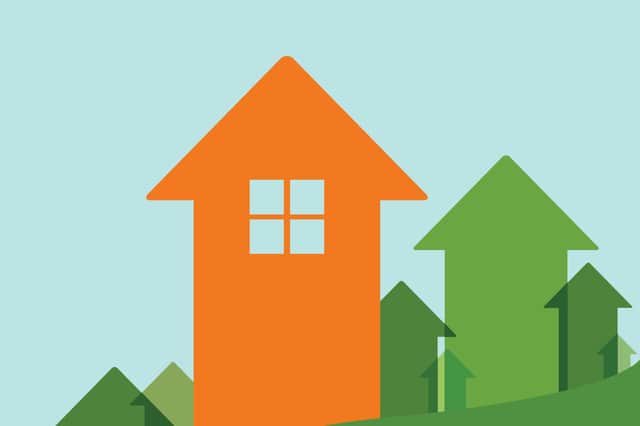Kirsty McLuckie: Plotting a house price on neighbouring values


It is easy enough to do online, at the click of a button. And the main reason people do it, the report states, is to get a better idea of what their own property is worth.
A completely understandable motive, although you do have to be realistic. Basing your own hovel’s worth on the chic mansion next door is likely to leave you disappointed when you come to sell.
Advertisement
Hide AdAdvertisement
Hide AdBut apparently people also like to find out what their neighbours, friends and family have forked out for their homes, which is surely taking information gathering into the realms of snooping.
There are even some respondents in the survey who stated that they have continued to date someone they wouldn’t have otherwise after viewing their home online, while others have dumped someone as a result of it.
Such stats, if true, point to a very shallow nation. Perhaps we should include house valuation reports on online dating profiles to completely remove the guesswork for prospective gold diggers?
Of course it can be a good thing to check previous sold prices on a specific property if you are considering buying it, and most websites include a sold-price history on a home’s page. Knowing what the current owner coughed up might give you an idea of what they would deem an acceptable offer.
These trajectories can tell a tale. There in cold hard figures are the ghosts of past owners who lost money by buying at the height of the market and selling in the doldrums.
You can track the booms as well as the busts but, of course, you have no idea if each owner improved the property during their tenure.
There is also the temptation to take umbrage with anyone asking an astronomical price for something they paid a relative pittance for just a few years before.
With an offers-over system such insight probably won’t help in the long run anyway, as bids are competitive.
Advertisement
Hide AdAdvertisement
Hide AdMy son and his girlfriend lost out on a flat at a closing date this week, only managing the third highest bid.
We’d checked what the place had sold for the last time around – nine years ago – and the owner is set to make quite a whack.
In a strange coincidence, we had a little more inside info on this particular property than most, because my husband and I used to own it too.
Sales records online don’t go back as far as our tenure, but we bought it as our first home after we got married in 1995, and paid the princely sum of £30,000.
It is still a nice flat and even though it is priced at many multiples of that sum, it’s a good buy for a young couple. But, alas, it was not to be.
“If only we’d kept it!” was our first thought – entirely illogical, because without selling, we couldn’t have bought our next home.
So perhaps that is the other reason why checking out sold prices can be dangerous.
Looking back on something you once let go, and finding out how much it would be worth today is an exercise in regret that surely isn’t good for anyone.
- Kirsty McLuckie is The Scotsman’s property editor